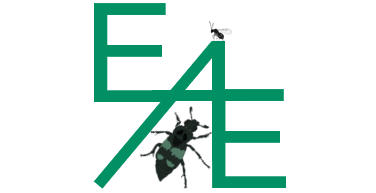| Körner, M; Diehl, JMC; Meunier, J: Growing up with feces: benefits of allo-coprophagy in families of the European earwig, Behavioral Ecology, 27(6), 1775-1781 (2016), doi:10.1093/beheco/arw113 | |
| Abstract: An important issue in the evolution of group living is the risk of pathogen and predator exposure entailed by the inherent accumula- tion of feces within a nesting site. While many group living species limit this risk by cleaning the nest, others do not, raising questions about the benefits of maintaining feces in the nest and their importance in social evolution. Here, we investigated whether one of these benefits could be mediated by coprophagy in families of the European earwig, Forficula auricularia. In this insect species, mothers and mobile juveniles (nymphs) line their nests with feces and consume them. In a first experiment, we tested whether access to feces produced by either nymphs or mothers affects nymph survival in both presence and absence of food. The results showed that access to sibling feces, but not mother feces, enhanced offspring survival under food deprivation. Such an effect did not occur when regular food was available. We then conducted a food-choice experiment to reveal whether nymphs prefer food to feces, and if they discrimi- nate between feces from their mother, unrelated adult females, unrelated nymphs, or their siblings. We found that offspring generally preferred regular food to feces, but nevertheless always consumed some feces. By contrast, nymphs showed no preference between related sibling or mother feces and did not discriminate between feces from related and unrelated individuals. Overall, our results suggest that the benefits of coprophagy could favor the maintenance of feces within the nest and promote the evolution of social life. |

